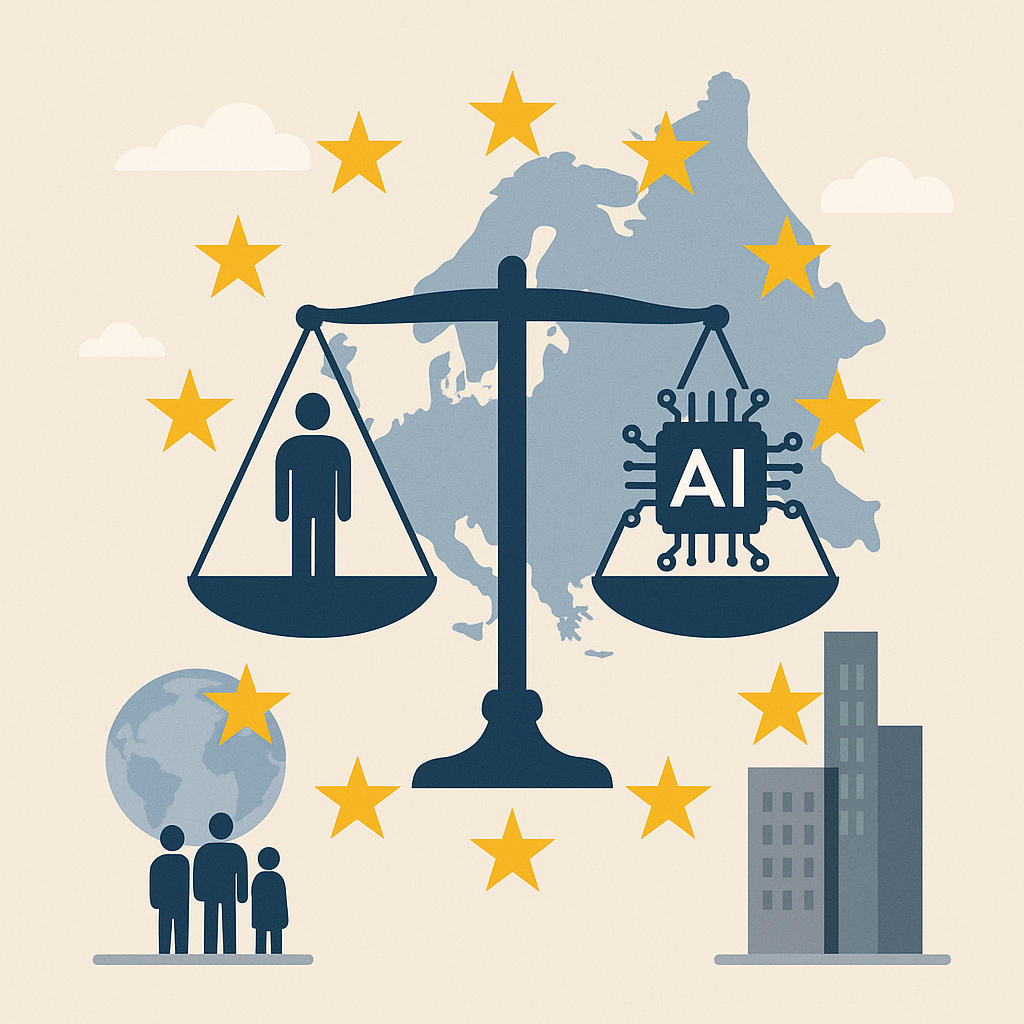By the Digital Humanism Initiative — September 1, 2025
We are at a critical turning point as the extremely rapid development digitalization spearheaded by AI constitutes a technological and associated societal, economic and (geo)political upheaval – with great potential benefits, but also equally great dangers. The question now is who will steer this development so as to harness the benefits and avert the dangers.
With the DSA, DMA, GDPR, and AI Act, the EU has created a comprehensive and actionable regulation framework for the digital space to prevent the arbitrary power of a very small number of very large corporations. These laws have served and continue to serve as a blueprint and basis for regulations in other countries such as Brazil, South Korea, Canada, Thailand as well as a large number of states in the US. This is what is known as the Brussels effect – European regulation is “adapted and adopted”.
Unsurprisingly perhaps, there are now renewed threats from the US administration against this approach, claiming -falsely- that it restricts free speech and fair competition while the true reason is that it restricts the power of the US digital giants – which it does. Even in Europe, following pressure applied by the U.S. to individual countries, voices are being raised in favor of “deregulation”, with the demonstrably false argument that regulation hinders innovation.
We must remain vigilant and support those who defend the European approach. The Digital Humanism Initiative submitted a petition on this issue last year (supported by many), which was discussed by the EU Parliament’s Petitions Committee in July 2025 (https://shorturl.at/5b6QX). “Our” petition—also as a civil society action—was supported by all political parties in the committee. The committee’s decision was to “keep the petition open.”
This means that the European Parliament and civil society now have a legal and political means to take action and raise objections in the event of the European Union “backing down.” in the face of threats that range from trade to security. But this is not just about Europe; it is also about global order and justice in the digital space. This is in harmony with the core message of digital humanism: technology should not be developed in accordance with the interests of a few companies and countries, but for the benefit of all.

